Gianluca Bocchi | |
|---|---|
 | |
| Born | 19 December 1954 Milan, Italy |
| Era | 20th-century philosophy |
| Region | Western Philosophy |
| School | Epistemology of Complexity |
Gianluca Bocchi (born 19 December 1954) is an Italian philosopher.
Gianluca Bocchi | |
|---|---|
 | |
| Born | 19 December 1954 Milan, Italy |
| Era | 20th-century philosophy |
| Region | Western Philosophy |
| School | Epistemology of Complexity |
Gianluca Bocchi (born 19 December 1954) is an Italian philosopher.
Gianluca Bocchi studied Philosophy at the University of Milan where he graduated in Philosophy of Science in 1978, discussing a dissertation entitled "Conditions and rules in the context of contemporary scientific epistemology" (supervisors: Ludwig Geymonat and Giulio Giorello). From 1983 to 1988, he taught Philosophy and worked as a researcher at the Faculty of Psychology and Educational Sciences of the University of Geneva, carrying on his research within the scientific team coordinated by Alberto Munari, one of the main exponents of the Piagetian school of genetic epistemology; and has worked extensively with Edgar Morin in Paris on the themes of complexity and complex thinking.
Apart from its academic research and teaching engagements at the University, he has also been working as an author, lecturer, scientific consultant and trainer. He has been working as a project manager and scientific trainer within a number of training projects promoted by leading Italian companies (such as Omnitel, ISVOR-FIAT, Telespazio, RAI, Unilever, ENEL, ENI, IBM, HP, Unicredit, Banca Intesa, Banca Mediolanum, Publitalia, etc.) as well as within training courses for teachers, psychotherapists, and managers of "human systems". He has been giving a number of lectures and seminars in various post-graduate Master courses, and he has especially been working with the TSM-Trento School of Management. He lectured and lectures extensively for managerial audiences on the political and cultural international landscapes in the age of globalization; on human evolution; on scientific and philosophical themes of complexity and change (how the understanding of patterns of change in natural and human history can help us in facing the ubiquitous challenge of change in human organizations).
He has been guiding a number of "study tours", especially to Berlin and the United States, devoted to managers and students and mainly concerning the topic of innovation and identity. In particular, he is currently organizing 'study tours' (Berlin, Istanbul, Prague, Lisbon) on behalf of the section devoted to Training and Work of the Italian Province of Trento (Formazione e Lavoro della Provincia di Trento) and on behalf of a Federation of banks of the Italian Region "Trentino" (Federazione delle Casse Rurali del Trentino). In 2009 and 2010, different groups of students from the University of Bergamo attended "study tours" to Berlin and Stockholm.
Gianluca Bocchi is currently Full Professor at Bergamo University, Italy, Department of Human and Social Sciences, where he teaches Philosophy of Sciences, Global History and Global Sciences. His courses address epistemological issues concerning life sciences, history and the main controversies within the tradition of evolutionary studies, the current major developments within the sciences of complex systems, the philosophical question of identity, the relationship between natural sciences and human sciences, the epistemological reflection regarding both history and geography. He is currently also Director of the Centre for Research on Complexity (CE.R.CO) at the University of Bergamo, which research activities are devoted to theories, researches and practices concerning complex systems in human, social and natural sciences. He is also scientifically responsible for the University of Bergamo of the EU 7FP project "Bordering, Political Landscapes and Social Arenas: Potentials and Challenges of Evolving Border Concepts in a Post-Cold War World" (acronym EUBORDERSCAPES, 2012/2016).
Apart from his role as Professor at the University of Bergamo, Gianluca Bocchi is also teaching Global History and supervising PhD students and PostDoc fellows within the PhD Programme in Anthropology and Epistemology of Complexity. From 2002 to 2006, he was also the Scientific Coordinator of the PhD Programme in Anthropology and Epistemology of Complexity. Gianluca Bocchi introduced, indeed, complexity studies in Italy with the volume La sfida della complessità (with Mauro Ceruti, Feltrinelli, 1985) that focuses on the changing paradigms of sciences in the present times as well as the number of modes human beings adopt to inhabit the globe. With Mauro Ceruti and Edgar Morin, he is the author of the book L’Europa nell’era planetaria (Sperling & Kupfer, 1991), where the authors reflect on the complex issue of the co-habitation of different people and nations in the Europe of the 90s and on the main trends of the world history at the beginning of the new millennium. In 1993 he published Origini di storie (with Mauro Ceruti, Feltrinelli), in which the authors attempt to investigate the complex relations between science, history and myth, by focusing in particular on images of biological evolutions as well as on the evolutions of natural and human history within contemporary sciences. With Mauro Ceruti, he also published Solidarietà o barbarie. L’Europa delle diversità contro la pulizia etnica (Raffaello Cortina, 1994) that wants to be a sort of manual for citizens of the new Europe, as writes Edgar Morin in the preface to the book, by proposing a critical analysis of the historical roots of the European civilization and of European nations in the light of the major events of the present times, that are so ambivalent being at the same time full of constructive and deconstructive potential. In 2001, he edited with Mauro Ceruti the volume Le radici prime dell’Europa (Bruno Mondadori), an interdisciplinary collection of the most important reflections (mostly genetic, linguistic and archaeological) that allow us to re-construct the long-term European history making reference, in particular, to migration routes (of people and cultures) that took place through the continent. In the volume, special attention is also devoted to the issue of ethnic identities in Europe both in the past and in the present. Another interesting book on the origins of Western civilization and world history is Origini della scrittura. Genealogie di un’invenzione (with Mauro Ceruti, Raffaello Cortina, 2002). In 2004, he wrote the book Educazione e Globalizzazione (with Mauro Ceruti, Raffaello Cortina), where the authors propose a way to reform the national educational system by taking into account the major changes that have been occurring in both the international geo-political and geo-economical scenarios as well as in the forms and contents of our knowledge instruments for interpreting them. In 2009, he published the book Una e molteplice. Ripensare l’Europa (with Mauro Ceruti, Raffaello Cortina), an attempt to consider both the critical aspects of and the future opportunities inscribed in the present European continent's history as well as in the most recent development of the European Union, 20 years after the Berlin Wall fall in 1989. In 2013, he published the book Le vie della formazione. Creatività, innovazione, complessità (with Francesco Varanini, Guerini).
One of the main foci of Gianluca Bocchi's current scientific research is devoted to the epistemological questions arising for biological and evolutionary sciences, in an age where there is a proliferation of empirical and sometimes very surprising results concerning our knowledge of living systems: they do need a new philosophical frame to make them relevant for our enquiry concerning man, nature and society. Other main current fields of enquiry in Gianluca Bocchi's interrogation are: global history and human evolution; paradigmatic changes in the way of seeing and imagining the world by contemporary sciences; interactions, clashes and hybridizations of cultures; cultural stratifications, urban boundaries and planning strategies in contemporary European cities; social trends and institutional responses in political European systems; origins and developments of national and ethnical identities; politics and governance of globalization; the relationship between emerging technologies and human identities; the elaboration of a new philosophical view of change connecting models developed in natural and human sciences; philosophical implications of the rapid growing "sciences of the artificial" (synthetic biology plus robotics).
Gianluca Bocchi participated in and organized a number of international interdisciplinary conferences both as coordinator and member of the scientific committee and he translated and edited the Italian edition of many books on epistemology, philosophy of science, evolutionary studies and complexity theories (Ilya Prigogine, Edgar Morin, Niles Eldredge, Ervin Laszlo).
He was amongst the founders and the Editorial Board members of interdisciplinary scientific journals dealing with scientific and philosophical issues: La Casa di Dedalo, Oikos, and Pluriverso. Biblioteca di idee per una civiltà planetaria.
Nicla Vassallo, is an Italian analytic philosopher with research and teaching interests in epistemology, philosophy of knowledge, theoretical philosophy, as well as gender studies and feminist epistemology. She is currently a Full Professor in the Department of Philosophy at the University of Genoa, a Research Associate of National Research Council, and on List of alumni of King's College London. She also is a poet and lives in Rome.
Alberto Oliverio is a biologist and psycho-biologist. He is currently professor of Psychobiology at the Sapienza University of Rome. He has been one of the main assistants of Nobel prize winner Daniel Bovet.

Gianfranco Pasquino is an Italian political scientist. Professor Emeritus of Political Science at the University of Bologna and Senior Adjunct Professor at SAIS-Europe (Bologna). He studied at the University of Turin under Norberto Bobbio and specialized under Giovanni Sartori at the University of Florence. In his professional life, he has been associated with the University of Florence, Harvard University, University of California, Los Angeles and the School of Advanced International Studies in Washington, DC and Fellow of Christchurch and St Antony's at Oxford and Life Fellow of Claire Hall, Cambridge.
Franco Fornari was an Italian psychiatrist, who was influenced by Melanie Klein and Wilfred Bion. He was a professor at the University of Milan and the University of Trento. From 1973 to 1978 he served as president of the Società Psicoanalitica Italiana.

Massimiano Bucchi is an Italian sociologist, writer and a scholar of the relationships among science, technology and society.

Evandro Agazzi is an Italian philosopher and professor at the University of Genoa. His fields of interest are ethics of science and technology, logic, metaphysics, philosophy of language, philosophy of science, philosophical anthropology, and systems theory.

Giulio Giorello was an Italian philosopher, mathematician, and epistemologist.
Michele Marsonet is professor of philosophy of science and methodology of the human sciences, chairman of the philosophy department and vice-rector for international relations at the University of Genoa in Italy. Having worked as associate professor, first of logic and then of philosophy of science, at the University of Genoa from 1992 to 1999, he was then a full professor of theoretical philosophy and institutions of philosophy. He was also dean of the faculty of arts and humanities of the University of Genoa from 2002 to 2008. His main areas of study are in pragmatism, philosophy of science, metaphysics, methodology of the social sciences, political philosophy and philosophical logic. He has published extensively on the works of Nicholas Rescher.

Giovanni Reale was an Italian historian of philosophy.
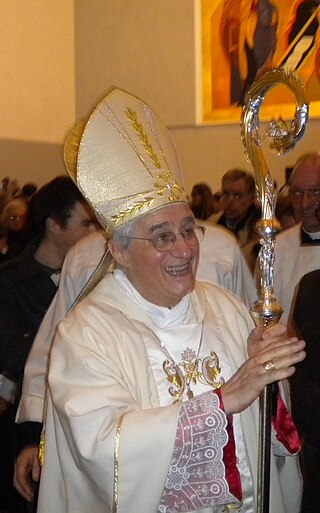
Gianni Ambrosio is the emeritus bishop of the Roman Catholic Diocese of Piacenza-Bobbio.
Matteo Motterlini is an Italian philosopher of science, behavioral and neuroeconomist. He teaches at Vita-Salute San Raffaele University of Milan, Italy.

Mauro Carbone is an Italian philosopher. Since 2009, he has been a full professor at the Faculté de Philosophie of the Jean Moulin University Lyon 3 in Lyon, France. From 2012 to 2017, he has been a senior member of the Institut Universitaire de France.

Paolo Alatri was an Italian historian and Marxist politician.
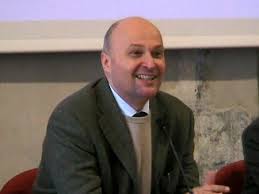
Mauro Ceruti is an Italian philosopher.
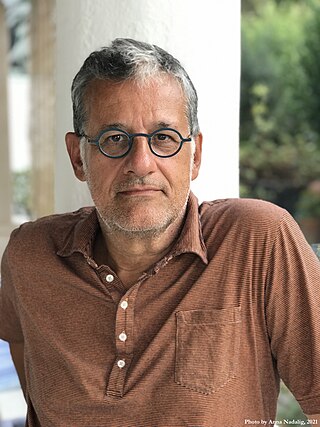
Vittorio Lingiardi is an Italian psychiatrist and psychoanalyst, Full Professor of Dynamic Psychology and past Director of the Clinical Psychology Specialization Program (2006-2013), Faculty of Medicine and Psychology, Sapienza University of Rome, Italy. He has coordinated with Nancy McWilliams the second edition of the Psychodynamic Diagnostic Manual, the PDM-2.
Donata Francescato is an Italian community psychologist and academic, trained in the United States, and known in academia and the media for her work on sex roles, communes, and personal and organizational empowerment. Her work in community psychology led to the discipline being recognized in 1985 as a compulsory subject in Italian universities where psychology is taught as a major subject.
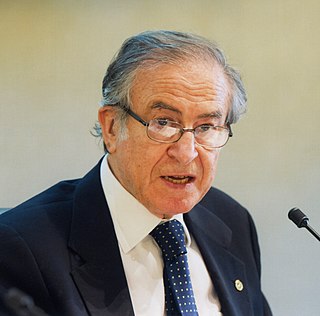
Alberto Quadrio Curzio is an Italian economist. He is Professor Emeritus of Political Economy at Università Cattolica del Sacro Cuore, Milan, President Emeritus of the Accademia Nazionale dei Lincei and President of the International Balzan Foundation "Prize".
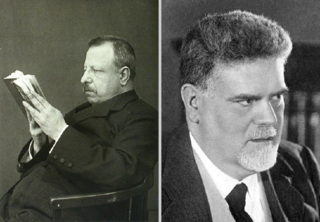
Italian idealism, born from interest in the German movement and particularly in Hegelian doctrine, developed in Italy starting from the spiritualism of the nineteenth-century Risorgimento tradition, and culminated in the first half of the twentieth century in its two greatest exponents: Benedetto Croce and Giovanni Gentile.

Franca D'Agostini is an Italian philosopher.

Sebastiano Giuseppe Locati was an Italian architect. He became famous at the turn of the twentieth century for his efforts in designing structures in eclectic and Art Nouveau styles.